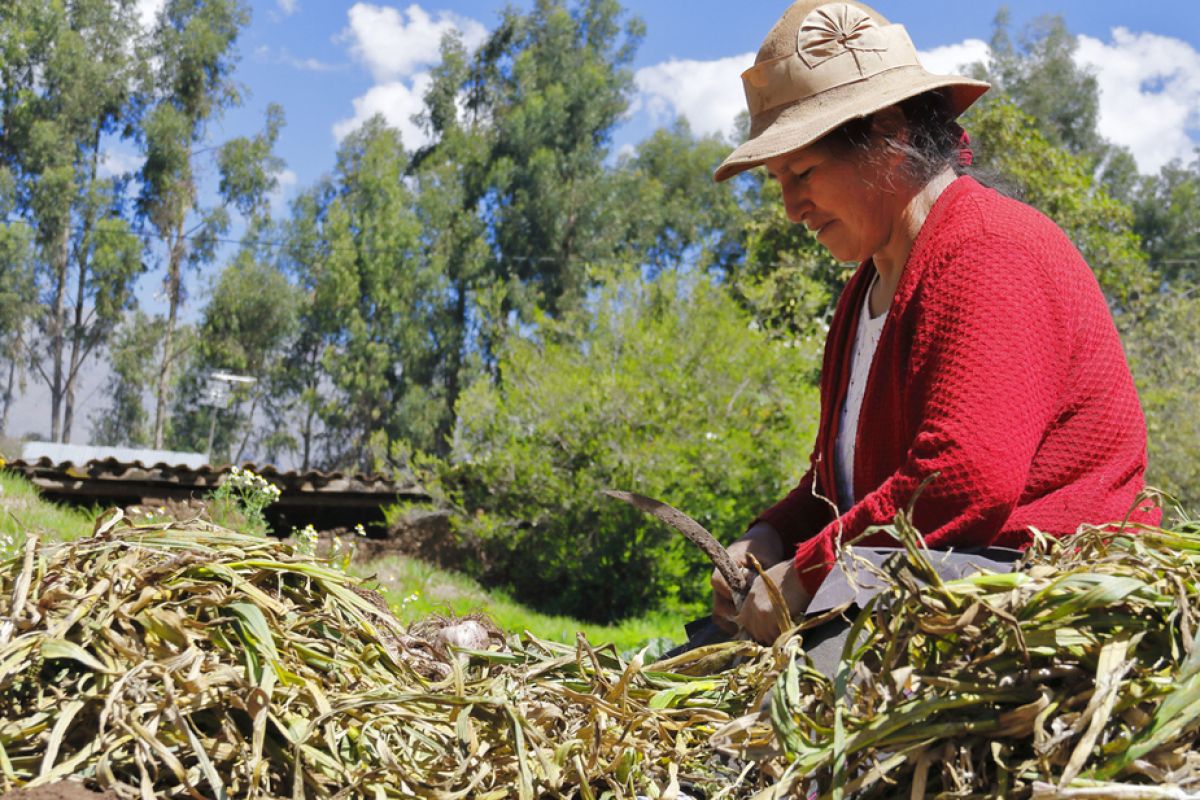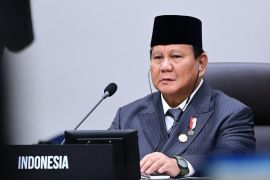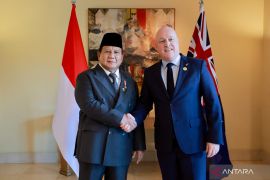According to a statement issued by the APEC Secretariat, it is among the several schemes being applied throughout the Asia-Pacific region to build financial resilience to disasters.
Crises are bound to arise, as the Asia-Pacific typhoon season sets in, but policies are being put in place in the region to insure against the economic devastation.
When typhoons, earthquakes, or other natural disasters hit, the poor are largely the ones to bear the maximum brunt. For instance, farmers in the Philippines suffered crop losses, hence translating to no harvest and zero income to repay often debilitating debts. Some may have crop insurance, but delays and complications in receiving the money can make it difficult to start over again.
"Farmers perish during natural disasters while attempting to save their livestock and crops, as they are the only assets they have," Paola Alvarez, assistant secretary of the Philippines Department of Finance, pointed out.
The Philippines is collaborating with public and private agencies to develop a micro-insurance scheme for its most impoverished farmers, fishermen, and other households to offer some extent of financial protection against disasters. For a small, affordable premium, they can quickly and easily obtain payouts from an insurance pool to help them restart their lives in the event of a disaster.
"It is a form of social protection in times of crisis," Alvarez emphasized.
The World Bank has estimated that APEC economies have continued to incur disaster-related losses crossing US$100 billion annually for the past decade. Climate change will only amplify the frequency and intensity of extreme weather events.
Strong infrastructure, early warning systems, emergency-action plans, and several other measures are paramount to mitigating the risks and impacts of natural disasters. Nonetheless, there is also a need to have in place financial mechanisms in advance to ascertain that economies can get adequate fund relief, and recovery and reconstruction efforts are promptly directed to them.
Building resilience to disasters has been prioritized by the APEC and Chile, the APEC host in 2019, including by sharing knowledge, experiences, and successful practices across the region. A study course was organized in Santiago early this year that enabled policymakers from APEC economies, along with the World Bank and Asian Development Bank (ADB) experts, to gain greater insights from one another on disaster risk financing.
"The Philippines remains highly focused on this, as we suffer from so many natural disasters and so are other economies, such as Indonesia, Japan, Vietnam, Singapore, and Chile," Alvarez, who organized the event, noted. Several of those economies are situated along the Pacific Ring of Fire, susceptible to quakes and volcanoes.
The course heard that lowering disaster risk can entail creating an exposure database that involved accruing data from several sources, so that economies gain a broader understanding of the exposure and vulnerability of infrastructure, homes, and businesses in villages, towns, and cities, and the cost of rebuilding them.
Adoption of financial instruments can then be targeted at manifold levels, covering international aid through grants from multilateral bodies, risk transfer in the form of catastrophe bonds and other insurance-related securities, and risk retention through contingency allocations in an economy’s annual budget.
Such proactive approaches prioritize planning responses in advance instead of depending on fundraising and withdrawing funds from other vital projects in the upshot of disasters.
"This layered approach is the most cost-effective means of financing disaster response through an array of tools to address different layers of risk, as no single instrument is optimal for responding to all disaster events," Benita Ainabe, an ADB financial sector specialist, stated.
For instance, Mexico initiated its natural disaster fund in the 1990s that draws from its federal expenditure budget for swift infrastructure reconstruction. In the meantime, Australia has prepared a scheme to speedily lend resources directly to its states to reduce the cost of relief and recovery aid to disaster-affected communities. At the personal level, Japan’s insurance program safeguards homeowners, particularly against quakes.
The Philippines, one of the economies most susceptible to natural disasters, set up an insurance program in 2017 that provides insurance coverage of over US$100 million to 25 provinces for typhoons and quakes by pooling risk and transferring it to private reinsurance markets. The economy’s insurance service provides the insurance, while the World Bank serves as an intermediary to transfer the risk to international reinsurers.
The Philippines is collaborating with the ADB to develop a similar scheme for 10 disaster-prone cities. Both schemes ascertain swift delivery of financing, eventually lessening the impact of any disaster.
Disparate to conventional insurance that entails time-consuming damage assessment processes, these parametric schemes offer prompt pay-outs of predetermined amount once specific disaster-linked indexes are met, including the magnitude of the quakes or wind speed for storms. They do not cover total damages but promptly offer urgently required funds for relief efforts till the time money from other sources becomes available.
At the regional levels, economies have also banded together -- including in Africa, the Caribbean, and the Asia-Pacific -- in recent years to create catastrophe risk pools to ensure that they promptly obtain insurance payouts in the event of a disaster.
Economies can pool risks in a diversified portfolio, retain some of the risk through joint reserves and capital, and transfer excess risk to the reinsurance and capital markets. The Philippines will shortly join one such regional insurance platform called the Southeast Asia Disaster Risk Insurance Facility, or SEADRIF.
“We have come a really long way. We have all exchanged knowledge and shared experiences. It is become a regional priority owing to the number of potential disasters we face,” Alvarez stated.
Editor: Bambang Purwanto
Copyright © ANTARA 2019











